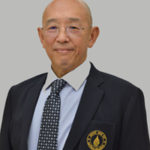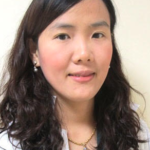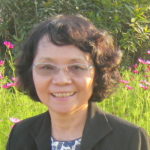
- This event has passed.
ILE PEDIA FORUM – Bangkok, Thailand (July 2019)
Session Dates:
July 29 – 31
Speakers & Lecture Synopsis
TOPIC 1: Global Trend To Improve Neonatal Outcomes
Supapannachart Sarayut, MD, PhD
Perinatologist/Neonatologist, Mahidol University, Thailand
Better neonatal care reduces mortality rate. However, the challenge is to improve the outcomes among surviving neonates. Healthcare personnel needs to understand common neonatal problems in order to give better care to these patients. In this session, we will focus on common neonatal problems including jaundice, perinatal asphyxia and updated practice in neonatal resuscitation.
Neonatal jaundice is one of the most common neonatal problems. In appropriate management may result in bad consequences such as acute encephalopathy, kernicterus or hearing loss which lead to poor long-term neurodevelopmental outcomes. Guideline of neonatal jaundice management, effective phototherapy and identification of high risk group are essential.
Competency in neonatal resuscitation is crucial, especially in the delivery room, to ensure the safety of neonates and decrease perinatal asphyxia. Currently, an updated neonatal resuscitation guideline (2015) has been used. There are some changes in the recommendation compared to the previous version such as no need to direct tracheal suction in non-vigorous neonates with meconium-stain amniotic fluid and modified corrective steps (MRSOPA), etc.
Perinatal asphyxia is another serious issue causing disability and death in neonates. New therapies such as therapeutic hypothermia and other adjunctive therapies have been found to decrease morbidity and mortality rate. However, good supportive care is important to contribute good outcomes.

Supapannachart Sarayut, MD, PhD
Perinatologist/Neonatologist, Mahidol University, Thailand
EDUCATION
1977-1980 B.S. Siriraj Hospital School of Medicine, Mahidol University, Thailand
1982-1983 M.D. Siriraj Hospital School of Medicine, Mahidol University, Thailand
1991-1992 MPH. University of Illinois at Chicago School of Public Health, Chicago, IL
2006 MBA Frankfurt School of finance and business, Frankfurt, Germany
POSTDOCTORAL TRAINING
Internships and Residencies
1984 Rotating Intern, Siriraj Hospital School of Medicine, Mahidol University, Thailand
1985-1987 Resident of Pediatrics, Southern Illinois University School of Medicine, Springfield, Illinois
Clinical and Research Fellowship
1987-1991 Fellow in Neonatology, University of Chicago, Illinois
RECENT ACADEMIC APPOINTMENTS
1994-2003 Assistant Professor, Ramathibodi Hospital School of Medicine, Mahidol University, Bangkok, Thailand
2003- Associate Professor, Ramathibodi Hospital School of Medicine, Mahidol University, Bangkok, Thailand
RECENT ADMINISTRATIVE APPOINTMENTS
2019- Vice President, Office of the President, Mahidol University, Nakhon Pathom Thailand
2017-2018 Deputy Dean, School of Hospital Management, Ramathibodi Hospital School of Medicine, Bangkok, Thailand
2013-2017 Chairman, Department of Pediatrics, Ramathibodi Hospital, School of Medicine, Bangkok, Thailand
2008-2012 Deputy Dean, International Affair, Ramathibodi Hospital, School of Medicine, Bangkok, Thailand
TOPIC 2: Diagnosis and Management of Common Allergic Problems
Wiparat Manuyakorn, MD, PhD
Pediatric Allergology & Immunology, Mahidol University, Thailand
Common allergic diseases including food allergy, atopic dermatitis, allergic rhinitis and have increased significantly in recent years. They are a major cause of morbidity in children. Early diagnosis and proper treatments is required the best outcome. Food allergies develop early in life and majority of them are outgrown in adulthood, and most of food allergic children have respiratory allergy at school age. Diagnosis of allergic diseases require through history taking and appropriate investigations. Treatments are consisting appropriate allergen avoidance and pharmacological treatments. However, allergic children require long term monitoring for the best outcome for our children.

Wiparat Manuyakorn, MD, PhD
Pediatric Allergology & Immunology, Mahidol University, Thailand
EDUCATION
May 1992-April 1998 Medical Degree with First class honors
Faculty of Medicine, Chulalongkorn University, Bangkok, Thailand
POSTGRADUATE TRAINING
October 2009 – December 2011 Doctor of Philosophy
Division of Infection, Inflammation and Immunity, Faculty of Medicine, University of Southampton
June 2004- May 2006 Pediatric Allergy and Immunology Clinical Fellow
Department of Pediatrics, Faculty of Medicine, Ramathibodi Hospital, Mahidol University, Bangkok, Thailand
June 2001- May 2004 Residency in Pediatrics
Department of Pediatrics, Faculty of Medicine, Chulalongkorn University, Bangkok, Thailand
June 2001- May 2003 Master of Science in Pediatrics
Department of Pediatrics, Faculty of Medicine, Chulalongkorn University, Bangkok, Thailand
RECENT WORK EXPERIENCE
Jan 2017-present Associate professor
Department of Pediatrics, Faculty of Medicine, Ramathibodi Hospital, Mahidol University, Bangkok, Thailand
Sep 2013-Dec 2016 Assistant Professor
Department of Pediatrics, Faculty of Medicine, Ramathibodi Hospital, Mahidol University, Bangkok, Thailand
Aug 2007-Sep 2013 Lecturer
Department of Pediatrics, Faculty of Medicine, Ramathibodi Hospital, Mahidol University, Bangkok, Thailand
PROFESSIONAL ORGANIZATIONS
1998 – present Member of Medical Council of Thailand
2004 – present Member of the Pediatric Society of Thailand
2004 – present Member of the Thai Royal College of Pediatrics
2005 – present Member of the Allergy and Immunology Society of Thailand
2005 – present Member of the American Academy of Allergy Asthma&Immunology
2005 – present Member of the European Academy of Allergology and Clinical Immunolgy Organization
2006 – present Member of World Allergy Organization
TOPIC 3: Nutrition of Children In Asia: Current Situation And Future Prospect
Pattanee Wichinagoon, PhD
Associate Professor, Institute of Nutrition, Mahidol University, Thailand
Asia is among the largest continent and the most populated region, considering India and China having the highest populations in the world. Stunting and wasting remain predominate in many countries and parts of Asia, whereas overweight and obesity has been on the rise, at an astonishing rate in some countries. Moreover, various vitamin and mineral deficiencies, the major ones: vitamin A. iron and iodine, are persistent in most Asian countries. The situation is termed Double Burden of Malnutrition (DBMN), implicating the co-existence of the two ends of malnutrition. Global movement has given impetus to alleviate malnutrition of all its forms. The World Health Assembly has set targets for achievements in 2025 to include reduction of stunting and wasting in young children, low birthweight, anemia in women and children, increase in the rate of exclusive breastfeeding and curbing the rise of childhood obesity. In addition, nine targets for non-communicable diseases (NCD) are included, namely, halting the rise of obesity, diabetes and hypertension, reduction in salt and alcohol intakes, and tobacco use, increase physical activity and access to therapy for heart attack and stroke.
Community-based nutrition programs and multi-sectoral policy have been successful in countries, such as Thailand, Indonesia, Nepal and some states in India, resulted in substantial reduction of maternal and child undernutrition. However, accompanying this trend, the rapid rises of childhood obesity and adult NCDs were observed. This is a very important lesson learned and raised the question on how to derive a better policy and program that address malnutrition of all its forms. The recent knowledge from the developmental origin of diseases also brought about the new perspective that risks of obesity and NCD lies in the early stage of life. Nutrition during the ‘first 1000d’, i.e., from conception (or even before) through the age of 24 months is the critical period and the window of opportunity for lifelong health. In low and middle income countries (LMIC) in Asia, maternal and child malnutrition has been implemented in most countries and need to be strengthened in light of this new perspective. Efforts to improve nutrition should be moving away from treating nutrient deficiencies that only confined nutrition-specific interventions (food or nutrient supplementation, food aids and even food fortification). The comprehensive nutrition-specific interventions and nutrition-sensitive interventions, i.e., multi-sectoral, integrated program that include food production/system, water sanitation, to name a few, while more complex, is promising in alleviating all forms of malnutrition. Maternal nutrition needs to be given higher priority and explicit nutrition components in the antenatal and postnatal care are essential to meet fetal and early infancy nutritional needs, as well as that of mothers. In addition to benefits for growth and development/cognition of the offspring, proper maternal nutrition is also crucial to prevent the risks of NCDs in both mothers and children in later life.

Pattanee Wichinagoon, PhD
Associate Professor, Institute of Nutrition, Mahidol University, Thailand
EDUCATION
1991 Ph.D. (International Nutrition), Cornell University, U.S.A.
1976 M.Sc. (Nutrition), University of Hawaii, U.S.A.
1972 B. Sc. (Food Technology) (second class honor) Chulalongkorn University, Thailand
RECENT POSITIONS
2004-2007 Deputy Director for Academic Affairs
2005-2007 Secretariat, Nutrition Association, Thailand
2008-2009 Member, Executive Committee of the Nutrition Association of Thailand
& 2012-2015
EDITORIAL OR ADVISORY MEMBER FOR JOURNALS
Editorial board for Maternal and Child Nutrition
Editorial board for the Malaysian J of Nutrition
Editorial board for the International J of Food Science and Nutrition
RECENT HONORS AND AWARDS
2013 IUNS fellow, International Union of Nutritional Sciences.
2011 Outstanding faculty, Institute of Nutrition, Mahidol University, Thailand.
Day 1
| 8:30AM | Registration |
| 8:45AM | Welcome Remarks Introduction to the Program |
| 9:30AM | Introduction of the Speaker Lecture 1 Open Forum |
| 10:15AM | Coffee Break |
| 10:30AM | Continuation of Lecture and Q&A |
| 12:00NN | Lunch |
| 1:00PM | Introduction of the Speaker Lecture 2 Open Forum |
| 2:00PM | Coffee Break |
| 2:30PM | Continuation of Lecture and Q&A |
| 4:00PM | Hospital Learning Walk NICU Sick Newborn Ward Breast Milk Bank Lactation Room |
| 5:30PM | Closing Remarks Group Photo End of Session |
Day 2
| 1:00PM | Registration Welcome Remarks |
| 1:15PM | Introduction of the Speaker Lecture 3 Open Forum |
| 2:15PM | Coffee Break |
| 2:30PM | Continuation of Lecture and Q&A |
| 3:30PM | Awarding of Certificates Closing Remarks Group Photo |
| 4:00PM | End of Session |
Hospital

Faculty of Medicine Ramathibodi Hospital
Mahidol University
270 Rama 6 Road, Thung Phayathai Subdistrict, Ratchathewi District, Bangkok 10400
 Following the Second National Economic and Social Development Plan (1964-1966), the Thai Government aimed to increase the number of doctors and nurses in order to meet the needs of the country. In August 1964, the Cabinet approved the plan of setting up a new medical school which would be located around the Phyathai area, Bangkok, Thailand. HM King Bhumibol Adulyadej graciously conferred the name on the new school of medicine “Ramathibodi” and laid the foundation stone for the building on December 30th, 1965. Four years later, the King came to open the new faculty of medicine on May 3rd, 1969. Apart from the Government’s fund, the Faculty was financially and academically supported by the Rockefeller Foundation from the United States of America. Since then the Faculty of Medicine Ramathibodi Hospital has been fully equipped and has provided medical education and research facilities to the public. Moreover, it serves patients in Bankgok and from all over Thailand.
Following the Second National Economic and Social Development Plan (1964-1966), the Thai Government aimed to increase the number of doctors and nurses in order to meet the needs of the country. In August 1964, the Cabinet approved the plan of setting up a new medical school which would be located around the Phyathai area, Bangkok, Thailand. HM King Bhumibol Adulyadej graciously conferred the name on the new school of medicine “Ramathibodi” and laid the foundation stone for the building on December 30th, 1965. Four years later, the King came to open the new faculty of medicine on May 3rd, 1969. Apart from the Government’s fund, the Faculty was financially and academically supported by the Rockefeller Foundation from the United States of America. Since then the Faculty of Medicine Ramathibodi Hospital has been fully equipped and has provided medical education and research facilities to the public. Moreover, it serves patients in Bankgok and from all over Thailand.
The Faculty of Medicine Ramathibodi Hospital has two principal buildings to serve 5,000 out-patients per day; first building, Main Building, mainly provides more than 1,000 beds for the tertiary care of complicated and severely ill patients in various specializing departments and units. The second building, the Sirikit Medical Center, serves as a center for modern research projects, namely, bone marrow transplantation project, the project of Advanced Diagnostic Imaging Center (AIMC). It also houses modern operating rooms and intensive care units.
A new and state-of-the-art medical center named “Somdech Phra Debaratana Building” serves as the most excellent service complex for thousands of out-patients. The building will have well-equipped facilities to perform high standards of healthcare in the Southeast Asian region. It will provide 350 beds, 16 operating rooms and 14 Intensive Care Units, and also comprehensive service centers such as Stem Cell Transplantation, Minimal Invasive Endoscopic Surgery Center, Elderly Care Unit, Child Development Center and Complicated Diseases Service by specialized doctors.
Source: https://med.mahidol.ac.th/en/
